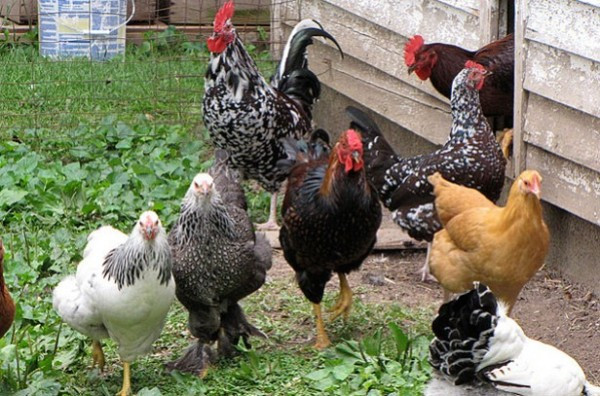Maintaining Egg Quality In Backyard Poultry Farming Business
In addition to keeping poultry for esthetic purposes, many small flock producers keep chickens for the products they produce. Producing eggs for family consumption or for local marketing is a common practice for many of these backyard flocks.
Getting the hens to lay eggs at a good rate is only part of the management program needed to have a successful operation. Once the eggs are laid, it is very important to handle and store them in a manner that will maintain their quality. This is the ultimate objective of producing eggs for human consumption, but it is sometimes overlooked in its importance.
Egg quality includes the visible characteristics such as cleanliness of the shell, thickness of the albumen, and color of the yolk as well as the characteristics of flavor and odor. Most eggs when freshly laid are of the highest quality.
 Learn More
Learn MoreMost of the quality problems that are associated with eggs occur after they are laid and are related to handling and storage prior to consumption. There are a number of ways to maintain egg quality so it can be passed on to the consumer.
Providing the consumer with the highest quality product, whether it be family or customer, will provide for a more pleasant experience in keeping chickens as well as increasing the potential profitability of any eggs marketed. Therefore, knowledge of proper handling and storage procedures of eggs prior to consumption are just as important as knowledge on how to produce the eggs.
The following tips can help you maintain the quality of the eggs produced from your flock:
1. Keep nest boxes maintained and clean. Most eggs are clean when they are laid, however, if the nesting material is dirty it is likely that the eggs will become soiled as well. Replace the nesting material once it becomes contaminated with dirt or fecal material.
READ ALSO: How to prevent diseases from entering your poultry farm
If nest boxes are not kept in good condition, eggs can be damaged or the hens may choose to lay their eggs away from the nest. These are referred to as floor eggs which often require more cleaning than nest eggs and also will result in more broken or cracked eggs.
Broken shells are an entry point for bacteria. Eggs laid away from the nest boxes may not be found by the collector and lost for consumption.
2. Collect eggs regularly. Eggs should not be left in the nests any longer than necessary. Removing the eggs as soon after laying as possible will reduce in house breakage and will limit the opportunity for contamination with dirt and fecal material.
Some hens will also develop a habit of pecking at eggs and breaking the shell if the eggs are left in the nests too long. Commercially, eggs leave the cages almost immediately after being laid and are collected on an egg belt. Eggs belts may be run 3-4 times a day to remove the eggs from the cage house.
Backyard flock producers should consider at least a morning and afternoon collection of eggs. Most eggs are laid during the morning, so more time may be required for that collection.
3. Separate broken and dirties. After the eggs are collected, the clean eggs should be separated from the dirty, cracked, or leaking eggs. Separation of these eggs from the others will help maintain the cleanliness of these eggs.
Cracked eggs should not be sold and any leaking eggs should not be used for human consumption. Leakers, however, may be used as pet food.
4. Wash dirty eggs. Dirty eggs should be washed using water that is warmer than the temperature of the egg. If eggs are washed in water that is cooler than the egg, it will cause the contents of the egg to contract slightly producing a partial vacuum inside the egg that will draw bacteria through the shell into the interior of the egg.
Bacteria inside the contents of the egg will enhance the spoilage of that egg. If eggs are washed in water that is warmer than the egg, it results in a slightly positive pressure that helps prevent the movement of bacteria into the interior of the egg.
It is actually safer to not wash eggs at all, rather than wash them in water cooler than the egg. Thus, wiping them off with a clean dry rag is preferable to washing them with water at the wrong temperature.
5. Storing eggs. Eggs should be refrigerated as soon after collecting and cleaning as possible. Eggs are perishable and will deteriorate in quality unless maintained at proper temperatures.
Refrigeration at temperatures of 50-55 degrees F is the best practice for maintaining eggs for extended periods of time. Heat will result in a breakdown of the protein structure of the egg as well as a loss of moisture.
Holding eggs in a simple home refrigerator will slow down the processes of albumen thinning and yolk thickening. With proper refrigeration, eggs can easily be held for a month or more without significant loss in quality.
Paying attention to these basic principles of egg handling and storage can result in more pleasure and safety in the consumption of eggs produced at home and can result in more profitable marketing to friends and neighbors.
Customers that recognize your eggs as having the highest quality and freshness characteristics will be more likely to return for more. In addition, your family can enjoy the many foods that can be prepared with this very high quality product.















